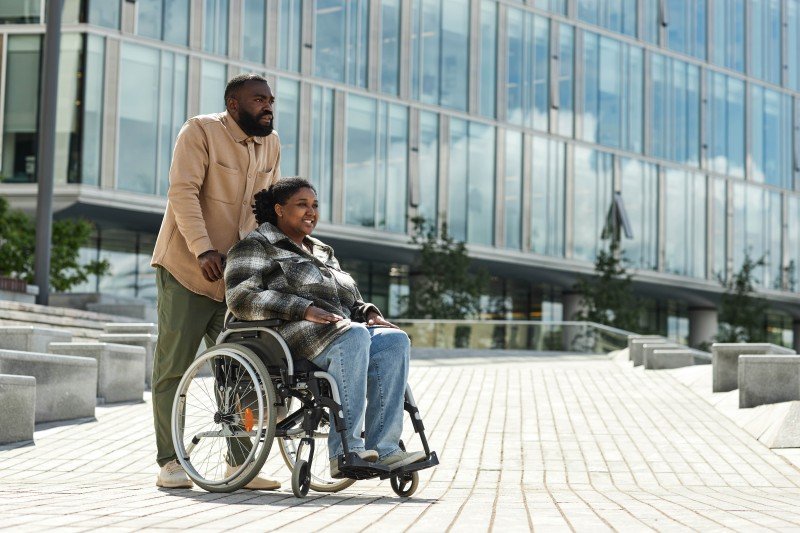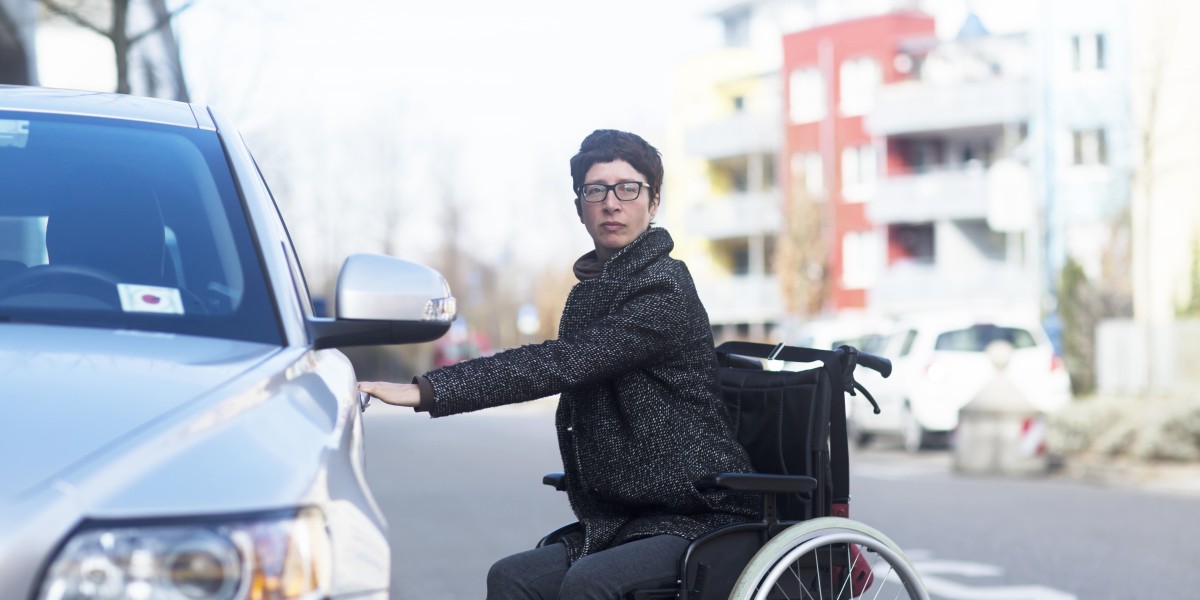Mobility Scooters in the UK: A Comprehensive Guide
In the United Kingdom, Mobility Scooter uk scooters are ending up being a significantly popular ways of transport for individuals with mobility problems, supplying them with the freedom to navigate their neighborhoods independently. These motorized vehicles are developed to assist those who have trouble strolling or utilizing a manual wheelchair, providing a practical and comfy solution for daily travel. This short article looks into the world of mobility scooters in the UK, exploring their advantages, legal requirements, and how to select the best one.
Introduction to Mobility Scooters
A mobility scooter is a battery-powered vehicle that generally has 3 or four wheels, a seat for the chauffeur, and handlebars for steering. They are developed to be simple to utilize and preserve, making them perfect for older adults and individuals with specials needs who want to maintain their independence. Mobility scooters been available in numerous sizes and designs, each accommodating different needs and choices.
Benefits of Mobility Scooters
- Increased Independence: Mobility scooters enable users to take a trip longer ranges without the physical strain associated with strolling or using a manual wheelchair. This self-reliance can significantly enhance their lifestyle.
- Cost-efficient: Compared to other motorized lorries, mobility scooters are reasonably budget-friendly. They likewise need very little maintenance, which can conserve users a lot of money in the long run.
- Relieve of Use: Most mobility scooters are created to be user-friendly, with intuitive controls and comfortable seating. They are often lightweight and can be easily disassembled for transport.
- Enhanced Social Interaction: By allowing users to venture out more regularly, mobility scooters can help in reducing feelings of seclusion and solitude, promoting social connections and community involvement.
- Boosted Safety: Mobility scooters are equipped with functions such as headlights, brake lights, and horns, making them much safer for use on roadways and in public spaces.
Types of Mobility Scooters
When choosing a mobility scooter, it's crucial to think about the type that best fits your needs. Here are the main types available in the UK:

Class 2 Mobility Scooters:
- Speed: Limited to 4 miles per hour (6.4 km/h)
- Usage: Suitable for pavements and pedestrian areas
- Functions: Compact and lightweight, collapsible for easy transportation
Class 3 Mobility Scooters:
- Speed: Can reach up to 8 miles per hour (12.9 km/h)
- Usage: Suitable for both pavements and roadways, supplied they are signed up and guaranteed
- Features: Sturdier construct, typically with more innovative functions like suspension and larger batteries
Sturdy Mobility Scooters:
- Capacity: Designed to support users weighing up to 400 pounds (181 kg)
- Usage: Ideal for those who require a robust and resilient scooter
- Features: Reinforced frame, wider seat, and enhanced stability
Off-Road Mobility Scooters:
- Terrain: Built to deal with rough and uneven surface areas
- Usage: Suitable for users who enjoy outdoor activities like hiking or fishing
- Functions: All-terrain tires, high ground clearance, and effective motors
Legal Requirements for Mobility Scooters in the UK
Using a mobility scooter in the UK includes specific legal duties. Here are the crucial points to consider:
- Registration and Insurance:
- Class 2 Scooters: No registration or insurance required
- Class 3 Scooters: Must be signed up with the DVLA, guaranteed, and display a legitimate MOT certificate if used on roads
- Chauffeur Requirements:
- Age: Users need to be at least 14 years old
- Health: No specific health conditions are required, however users should be able to control the scooter securely
- Speed Limits:
- Class 2 Scooters: 4 miles per hour (6.4 km/h) on pavements
- Class 3 Scooters: 8 mph (12.9 km/h) on roadways, 4 miles per hour on pavements
- Security Equipment:
- Lights: All scooters used on roads need to have front and rear lights, signs, and a horn
- Reflectors: Required for use on roadways, specifically during low presence conditions
- Tax and Parking:
- Tax: Class 3 scooters are exempt from lorry tax
- Parking: Users can park in designated disabled parking areas with a legitimate Blue Badge
How to Choose the Right Mobility Scooter
Selecting the ideal mobility scooter includes considering a number of aspects:
Mobility Needs:
- Range: How far do you need to travel?
- Terrain: Will you be utilizing the scooter on pavements, roadways, or off-road?
- Weight Capacity: What is the optimum weight the scooter requires to support?
Budget plan:
- Initial Cost: Mobility scooters can range from a couple of hundred to numerous thousand pounds
- Continuous Costs: Consider the expense of batteries, upkeep, and insurance
Features:
- Comfort: Look for a scooter with a comfy seat and adjustable controls
- Storage: Some scooters offer extra storage for shopping bags or individual items
- Portability: If you need to transport the scooter, select a model that is lightweight and collapsible
Reputation and Support:
- Brand: Research reputable brands known for their quality and reliability
- Service warranty: Check the service warranty period and what it covers
- Client Support: Ensure the producer or seller offers good client support and service
Frequently Asked Questions About Mobility Scooters in the UK
Do I require a license to drive a mobility scooter?

- No, you do not need a driving license to operate a mobility scooter in the UK. However, Class 3 scooters should be registered with the DVLA and guaranteed if used on roadways.
Can I use a mobility scooter on the pavement?
- Yes, both Class 2 and Class 3 scooters are allowed on pavements, however Class 3 scooters are limited to 4 miles per hour.
Exist any limitations on where I can utilize a mobility scooter?
- Class 2 scooters are restricted to pavements and pedestrian areas. Class 3 scooters can be utilized on roads, however they need to meet specific legal requirements.
How do I maintain my mobility scooter?
- Routine maintenance includes examining battery levels, tire pressure, and brake performance. It's likewise important to clean up the scooter frequently and store it in a dry location.
Can I get a mobility scooter through the NHS?
- The NHS provides mobility scooters through the Disabled Living Allowance (DLA) or Personal Independence Payment (PIP). You can also purchase or rent a scooter from a private merchant.
Is a mobility scooter tax-deductible?
- Sometimes, the cost of a mobility scooter can be declared as a medical expense. Speak with a financial consultant for particular assistance.
Tips for Using a Mobility Scooter Safely
- Use Appropriate Clothing:
- Wear comfy and weather-appropriate clothing. Think about wearing a high-visibility coat when utilizing the scooter on roadways.
- Maintain the Scooter:
- Regularly examine the battery, tires, and brakes to make sure the scooter remains in excellent working condition.
- Follow Traffic Rules:
- Obey traffic signs and signals, and use designated pedestrian and cycle paths when possible.
- Use Safety Equipment:
- Always use the headlights, brake lights, and horn, particularly throughout low exposure conditions.
- Be Mindful of Others:
- Be considerate to pedestrians and other road users. Decrease when approaching congested locations.
Mobility scooters are a valuable tool for people in the UK who deal with mobility obstacles. They use a series of advantages, from increased independence to enhanced safety, making them a popular choice for older grownups and people with specials needs. By understanding the various types of scooters, legal requirements, and how to pick the right one, users can delight in the flexibility and convenience these automobiles offer. Whether for daily errands or pastime, a mobility scooter can substantially improve the quality of life for numerous individuals.
Additional Resources
- DVLA Website: For info on registering and guaranteeing a Class 3 mobility scooter
- Age UK: Offers advice and assistance for older grownups considering a mobility scooter
- Disability Rights UK: Provides assistance on accessing mobility scooters through financial support programs
By putting in the time to research study and pick the ideal mobility scooter, users can take pleasure in higher independence and a more active lifestyle.







